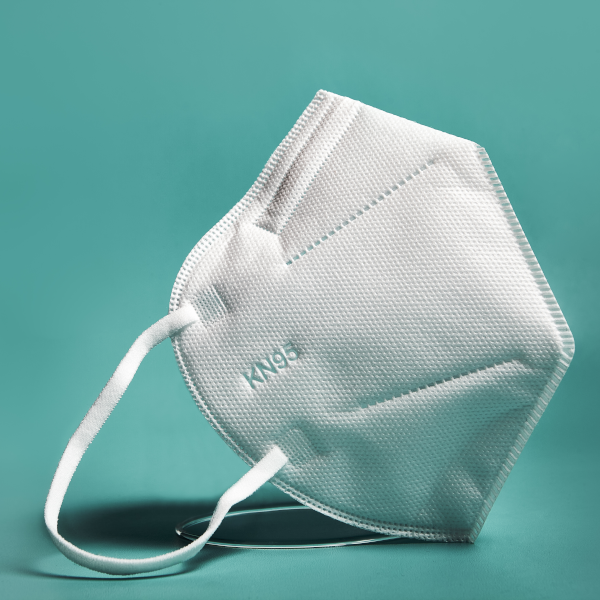Managing Your Health
Managing Your Health
How To Protect Yourself
The number one best way to protect yourself and your loved ones
from severe outcomes due to COVID-19 is to get vaccinated.
Find your vaccine at vaccines.gov or call 312.746.4835. Learn more at www.chi.gov/covidvax.
Protect yourself and others from COVID-19 by following these core prevention strategies:
Stay up to date with vaccines
Staying up to date with COVID-19 vaccines, especially for those with weakened immune systems, significantly lowers the risk of severe illness or hospitalization.
Practice good hygiene
Use common health practices such as covering coughs and sneezes, washing your hands often, and cleaning frequently touched surfaces.
Take steps for cleaner air
Improve ventilation by bringing in outdoor air, purifying indoor air, or spend time outside when possible.
- Wearing masks in public
- Maintaining physical distance from others
- Testing for COVID-19 when you feel sick
Learn more at Centers for Disease Control & Prevention
What To Do If You Think You're Sick
If you’re sick or have symptoms of COVID-19, you should get tested immediately and isolate until you know your results, even if you are fully vaccinated. To get tested, call your healthcare provider or find a testing site near you.
If you test positive, follow these recommendations:
- Stay home and away from others
- Once symptoms improve and you are fever free for at least 24 hours, you can consider returning to normal activities
- Take precautions for the next 5 days:
- Wear a well-fitting mask
- Take steps for cleaner air
- Enhance hygiene practices
- Keep a distance from others
- Get tested to inform your actions to prevent spread to others
What To Do If You've Been Exposed
Getting Tested After Exposure
If you have had confirmed or suspected close contact with someone who has COVID-19, instead of quarantine, you should wear a mask for 10 days around others in indoor settings and take a COVID-19 test five days after the exposure, or sooner if you develop symptoms.
Getting Tested After Developing Symptoms
Get tested immediately if you have symptoms of COVID-19, and isolate until you know your results, even if you are fully vaccinated.
If you test positive:
- Stay home and away from others
- Once symptoms improve and you are fever free for at least 24 hours, you can consider returning to normal activities
- Take precautions for the next 5 days:
- Wear a well-fitting mask
- Take steps for cleaner air
- Enhance hygiene practices
- Keep a distance from others
- Get tested to inform your actions to prevent spread to others
For additional information, please see CDC's latest guidance.
When To Seek Emergency Medical Attention
The list below is not all possible symptoms. Please call your medical provider for any other symptoms that are severe or concerning to you. Additional information can be found on the CDC website.
Adults: Look for the emergency warning signs below for COVID-19. If someone is showing any of these signs, seek emergency medical care immediately:
- Difficulty breathing or shortness of breath
- Bluish lips or face
- Constant pain or pressure in the chest
- Signs of low blood pressure (too weak to stand, dizziness, lightheaded, feeling cold, pale, clammy skin)
- Dehydration (dry lips and mouth, not urinating much, sunken eyes)
- Slurred speech or difficulty speaking (new or worsening)
- New confusion or difficulty awakening
- New or worsening seizures
Children: Parents, guardians and others caring for children should call their pediatrician if they notice these warning signs in a child:
- Fever for 5 days or more
- Not consolable or increased irritability
- Dehydration (dry lips and mouth, fewer wet diapers, not urinating as much as usual)
- Cold, pale skin
Parents and guardians should seek medical attention immediately (go to the Emergency Room or call 911) if they notice these warning signs in a child:
- Fast breathing, pulling in under the ribs and/or flaring of the nostrils when breathing
- Decreased activity, increased sleepiness or difficulty waking up
- Inability to keep any liquids or refusing to take liquids
Please call the child's healthcare provider for any other symptoms that are severe or concerning to you.
How To Use A KN95 Mask

While surgical masks and KN95 masks are intended for single use in clinical settings, when used as mitigation measures in community settings, they may be reused for an extended period of time. KN95 masks are widely available from a variety of online and store retailers. To best use your KN95 mask, do the following:
- For any mask, it is most important to make sure that it is well-fitted to your face.
- Always perform hand hygiene before putting on or taking off any mask or face covering
- Do not attempt to wash your KN95. To keep your KN95 clean between uses, you can store it in a dry paper bag.
- Discard your mask if it is:
- Soiled
- Damaged
- Becomes stretched out, no longer covers the nose and mouth, or cannot stay on your face
- Is hard to breathe through




